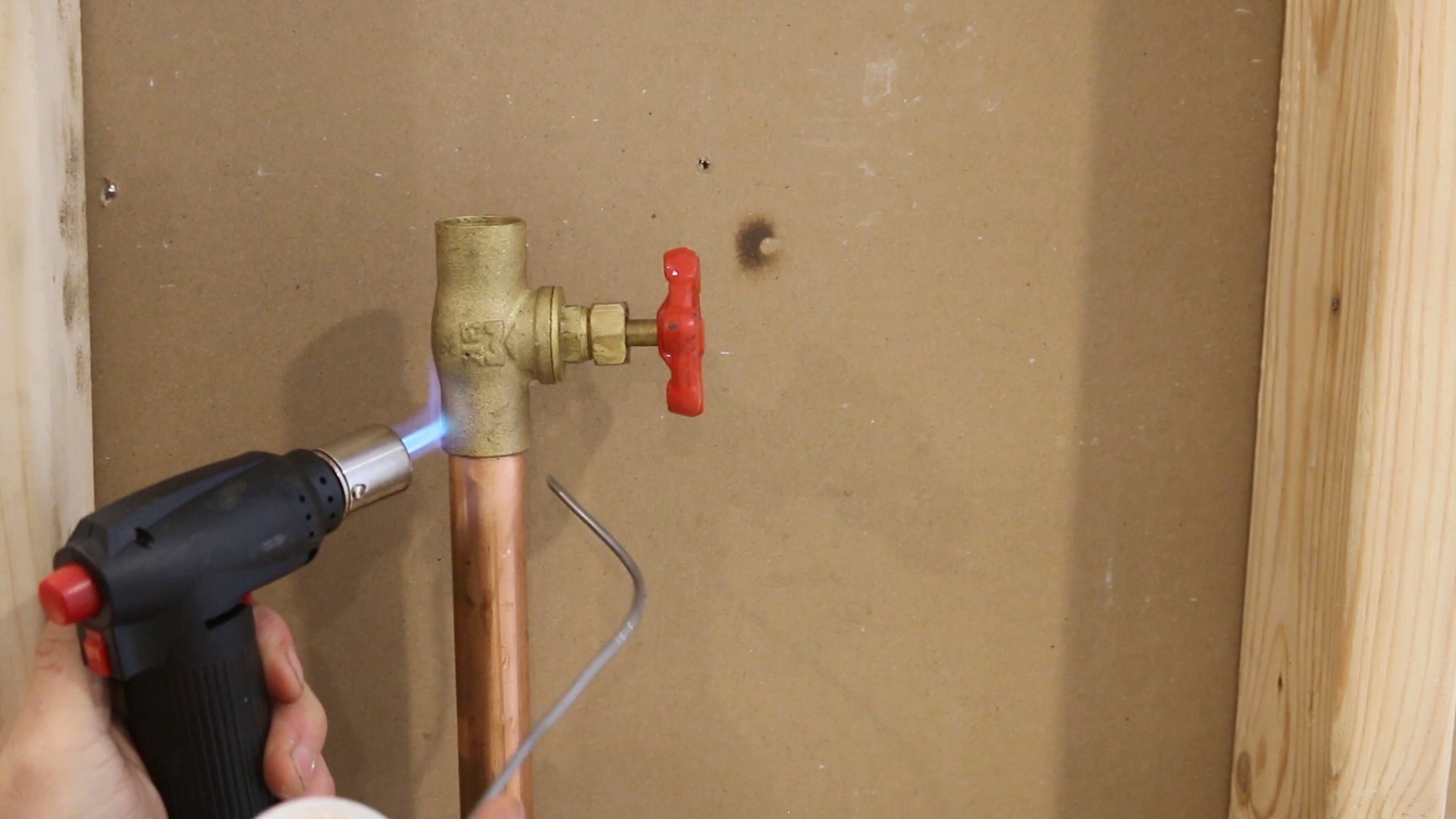Useful Methods to Winterize Your Plumbing and Prevent Freezing in Frigid Weather
Useful Methods to Winterize Your Plumbing and Prevent Freezing in Frigid Weather
Blog Article
Just about everyone has their own unique notions on the subject of Winterizing Your Pipes.

All house owners that live in pleasant climates need to do their best to winterize their pipelines. It is something you have to do during fall before deep winter really begins. Failure to do so can spell calamity like frozen, cracked, or ruptured pipelines. Below are some helpful winterizing hacks to keep your plumbing system protected even if the weather condition outside is frightful.
Attempt a Hair Clothes Dryer or Heat Gun
When your pipelines are nearly freezing, your reliable hair clothes dryer or warmth gun is a blessing. If the hot towels do not aid displace any kind of resolving ice in your pipes, bowling hot air directly into them might help. Nonetheless, do not make use of other things that create direct flames like a blow lantern. This can cause a larger disaster that you can not control. You might end up damaging your pipes while trying to melt the ice. And also in the long run, you may even end up burning your house. Be careful!
Open Up Closet Doors Hiding Plumbing
It would certainly be valuable to open closet doors that are concealing your pipelines when it's cool outside. They can be someplace in your cooking area or restroom. This will allow the warm air from your heating system to distribute there. As a result, you prevent these exposed pipelines from cold. Doing this little trick can keep your pipelines warm and limit the potentially harmful outcomes of freezing temperatures.
Take Time to Wrap Exposed Pipeline
One great and also very easy hack to heat up freezing pipelines is to wrap them with warm towels. You can cover them initially with towels. After securing them in place, you can pour boiling water on the towels. Do it gradually to allow the towels take in the fluid. You can additionally make use of pre-soaked towels in hot water, just do not neglect to wear safety gloves to secure your hands from the warmth.
Activate the Faucets
When the temperature level declines and it seems as if the cold temperature will certainly last, it will certainly aid to switch on your water both inside your home and also outdoors. This will keep the water flowing via your plumbing systems. Additionally, the activity will slow down the freezing procedure. Especially, there's no need to turn it on full force. You'll end up throwing away gallons of water in this manner. Rather, go for concerning 5 declines per minute.
Turn off Water When Pipelines are Frozen
Turn off the primary water shutoff instantly if you discover that your pipes are totally frozen or practically nearing that phase. You will typically discover this in your basement or utility room near the heating unit or the front wall closest to the street. Transform it off immediately to prevent additional damages.
With even more water, even more ice will load up, which will eventually lead to burst pipelines. If you are unsure concerning the state of your pipes this winter months, it is best to call an expert plumber for an evaluation.
All house owners who live in temperate climates have to do their ideal to winterize their pipes. Failing to do so can spell calamity like frozen, fractured, or burst pipes. If the hot towels do not assist remove any working out ice in your pipes, bowling warm air straight right into them might aid. Transform off the main water valve immediately if you discover that your pipes are entirely frozen or practically nearing that phase. With even more water, more ice will stack up, which will eventually lead to break pipes.
PREVENT YOUR PIPES FROM FREEZING THIS WINTER
A Leading Cause of Property Damage
When the weather is taking a deep nose dive into the cold dreary days, the risk of your pipes freezing and potentially bursting skyrockets. Unfortunately, during these cold dreary months, burst pipes are the most common denominator for property damage. The pipes that are most at the risk are those that are in areas where it is most cold in your home. For instance, pipes located in interior places such as basements, attics, and your garage. Unfortunately, that doesn’t mean that the pipes running through your cabinets or exterior walls can’t freeze. Good news, however, is that you can do things to help prevent pipes from freezing.
How to Prevent Pipes From Freezing
Once the temperature starts to drop during the winter, you should be taking the proper measures needed to ensure that your pipes stay warm and that there is circulation of water through them. Some steps that experts may recommend could go against your better judgement when it comes to saving water and heat. However, it would go without saying that when expenses are compared, damaged pipes could put a bigger dent in your wallet than a water bill.
What Can I Do?
Keep your garage door closed. This is very important, especially if you have water supply lines running through your garage. Open your kitchen and bathroom cabinets to allow warm air to circulate through them. Allow air circulation throughout your home. Keeping the interior doors open will once again allow the warm air to circulate inside your home. Ensure your thermostat is running the same temperature throughout the night and day. If you plan to be away from home during the cold months, set your temperature no lower than 55° F. This should provide enough heat to keep the pipes warm and prevent any remaining water inside the pipes from freezing. For more of a long-term solution, add insulation to attics, basement, and other crawl spaces around your home. By allowing your faucet to drip, it will alleviate pressure in the system. This is important because the pressure that is created between the blockage and the faucet can potentially cause the pipes to burst. Allowing the faucet to drip will prevent the pressure from building up, therefore keeping the pipes from bursting. Seal any cracks, openings, and crawl spaces around your home to prevent cold air from coming inside. This keeps your pipes-not to mention your home-warmer and less susceptible to issues caused by freezing temperatures. For the pipes in your home that are easily accessible, applying electrical tape to them might prevent them from freezing over. This is a quick fix, as you can apply the tape directly to the pipe. There are two options for heating tapes. One turns on and off by itself when it senses heat is needed. The other type of heating tape needs to be applied when heat is needed and removed when not necessary. If you have exposed pipes in your home, you can check this website to take a look at a few options that would be available at a shop near you.

I discovered that page on How to stop pipes from freezing during the winter while looking around the search engines. Do you know about somebody who is excited about How to stop pipes from freezing during the winter? Do not hesitate to promote it. I recognize the value of reading our article about Winterizing Your Pipes.
We've got solutions! Report this page